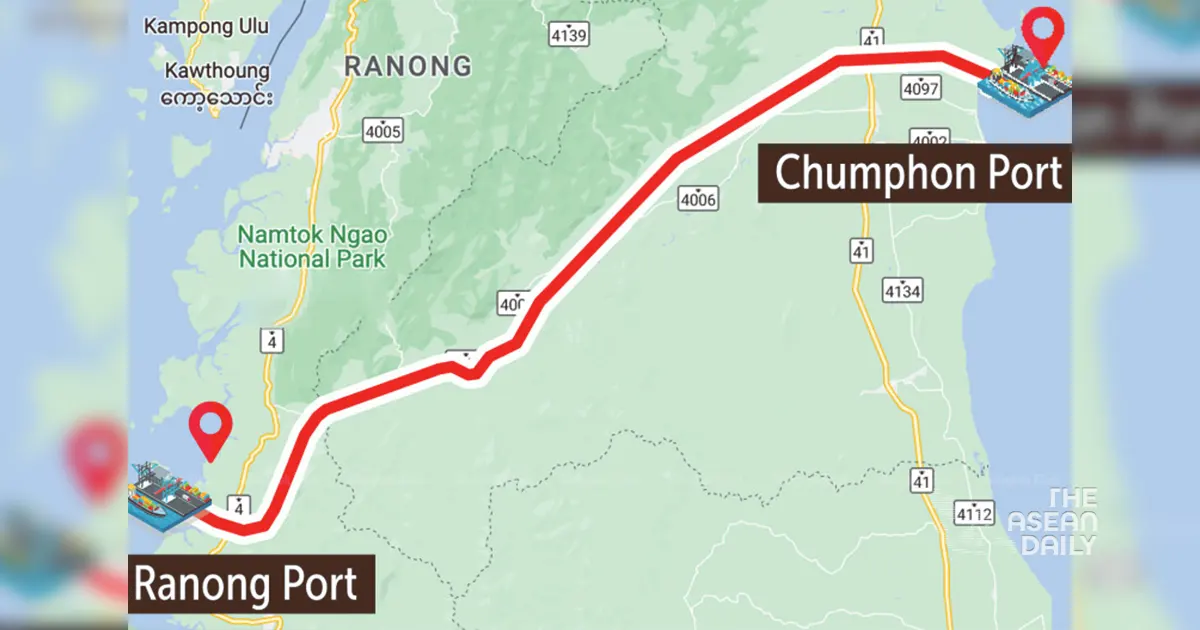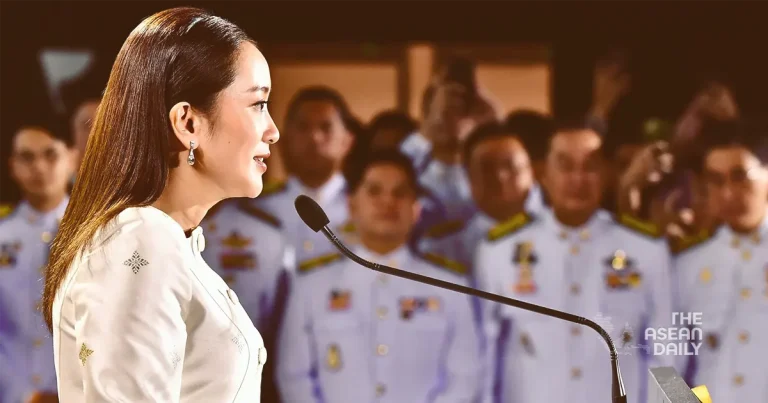20-8-2024 (BANGKOK) In a dramatic shift of Thailand’s political landscape, Paetongtarn Shinawatra’s ascension to the role of Prime Minister marks a crucial juncture for the nation’s governance and policy direction. The 38-year-old scion of the influential Shinawatra family now helms a government beset by unfulfilled promises and heightened legal scrutiny, following the abrupt dismissal of her predecessor, Srettha Thavisin.
As Thailand’s 31st Prime Minister, sworn in on 18 August, Paetongtarn inherits a complex political tapestry woven with populist pledges and ambitious economic schemes. Her novice status in governmental affairs, having never held office before, places her in a precarious position where every decision will be closely watched and analysed.
The cornerstone of the previous administration’s economic strategy, the digital wallet scheme, now hangs in the balance. This ambitious plan, which promised to inject 10,000 Thai baht into the pockets of every Thai citizen over 16, was designed to stimulate local economies and alleviate cost-of-living pressures. However, its estimated $14 billion price tag has raised eyebrows and questions about fiscal responsibility.
At her inaugural press conference, Paetongtarn struck a cautious tone, emphasising the need for further study and consultation on the digital wallet initiative. This approach reflects the delicate balance she must maintain between fulfilling campaign promises and navigating the legal and economic realities of governance.
Somchai Srisuthiyakorn, Thailand’s former election commissioner, underscores the gravity of Paetongtarn’s position: “She is the last possible qualified family member who can be involved in politics. This is the main drive for her performance to reach success and to not jeopardise herself and her family.” This sentiment echoes the widespread perception that Paetongtarn’s leadership represents a final stand for the Shinawatra political dynasty.
The new Prime Minister also faces challenges in other key policy areas. The proposed reform of cannabis laws, a contentious issue that has divided coalition partners, requires deft political manoeuvring. Similarly, the fate of the ambitious Kra Isthmus land bridge project, a US$36 billion infrastructure endeavour championed by her predecessor, remains uncertain amidst environmental concerns and funding questions.

Political analysts suggest that Paetongtarn may pivot towards policies with historical resonance for the Shinawatra family, such as revitalising the “Village Fund” initiative or expanding universal healthcare coverage. However, such moves could be perceived as a retreat to familiar territory rather than bold leadership.

Dr Titipol Phakdeewanich, director at the Regional Center for Human Rights at Ubon Ratchathani University, notes the public’s growing scepticism towards the Pheu Thai party: “The impression in many people’s minds and feelings is that Pheu Thai does not have a firm standpoint and the family’s interest is the priority; the interest of the Shinawatra dynasty is above the interest of the country.”
As Paetongtarn navigates these turbulent political waters, the influence of her father, former Prime Minister Thaksin Shinawatra, looms large. Many view her leadership as a proxy for Thaksin’s return to power, a perception that could both bolster and hinder her effectiveness.
The coming months will be critical for Paetongtarn as she attempts to chart a course that balances populist expectations with economic pragmatism, all while under the watchful eye of Thailand’s powerful institutions and a public weary of political turmoil.




